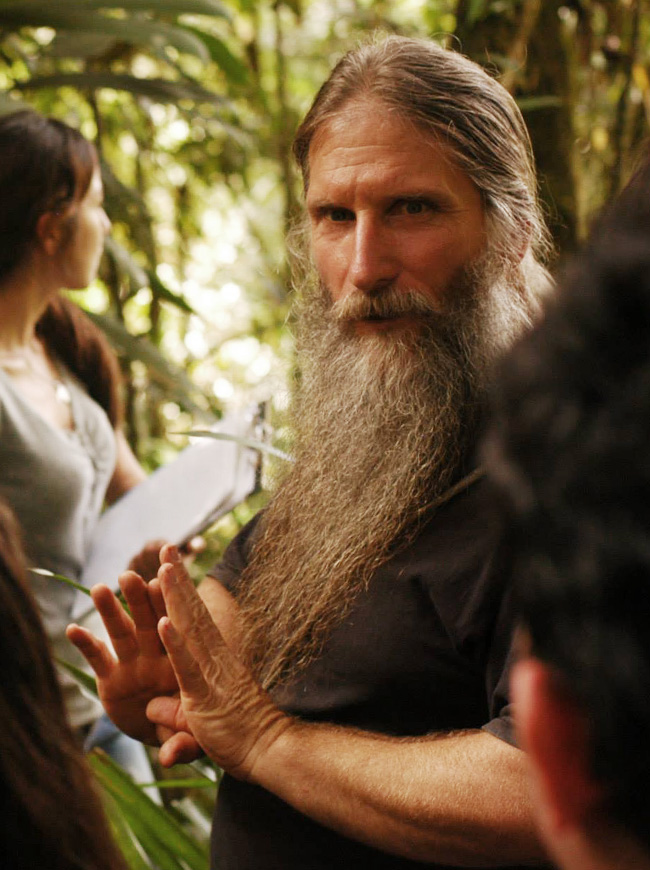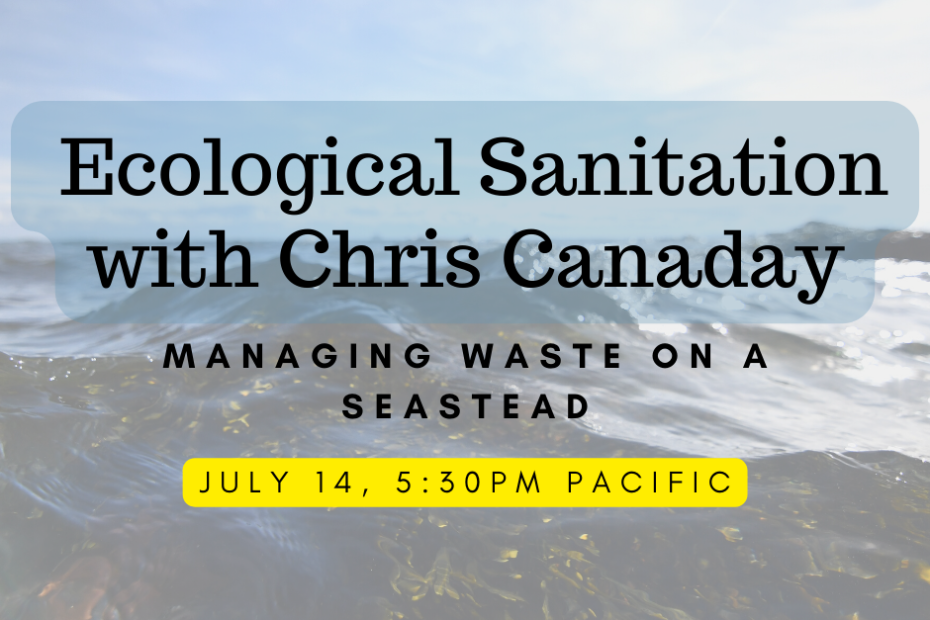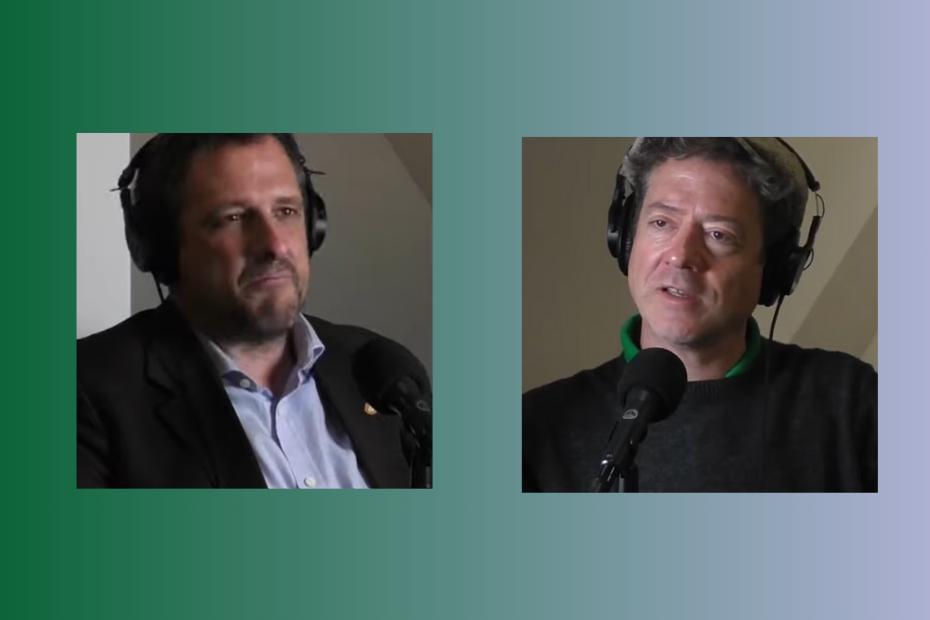Managing Waste on a Seastead
Once a month, we will host a free, online discussion on a topic related to seasteading. This month, the topic is “Ecological Sanitation with Chris Canaday.”
One of the founding principles of Seasteading is that we should not contaminate the ocean that we depend on and, instead, contribute to cleaning it up. This is particularly key, since we obviously want to swim around our floating homes and likely eat some fish and seaweed.
In order to achieve this, we need to get our shit together –literally– and this is feasible, if we think about the problem rationally. The most economical, ecological, and guaranteed option is the Urine-diverting Dry Toilet, as we explained in this video, “Where Does the Poop Go?” with Joe Quirk.
We can also have normal-looking flush toilets and do Closed-loop Flush-water Recycling, even though this will be new for the world (but Chris is getting closer to doing this at his house in Ecuador and is advising on a project to do so at a school in Kenya).
We can have presentable, hygienic toilets that safely channel back to our food plants the nutrients that are 90% found in our urine.

Chris is a biologist in the Amazon. He is from California, where he studied Biology and Wildlife Management and learned about the immense biodiversity of the Tropics. After traveling and volunteering in Latin America for a year and a half, he did a masters in Conservation and Development in Latin America at the University of Florida, with a thesis on the impacts of deforestation and oil companies on Amazonian forest birds in the Cuyabeno Reserve of Ecuador. When he came back to Quito to let people know what he had found out, he was offered two jobs in conservation, without looking for them, and decided that this must be a sign that it was time to do conservation and not just talk about it, so he stayed and has helped to protect nature here for over three decades.
He did the fieldwork to help five indigenous communities in the Cuyabeno Reserve to sign cooperative agreements with the Ecuadorian national park service to define their land use rights, while assuring nature conservation.
Together with an indigenous Kichwa bird expert, Jiovanny Rivadeneyra, he measured the deepest recorded impacts on forest birds of anywhere in the world, with birds being affected kilometers into the forest mostly apparently due to the noise, in a project that was actually funded by the same oil company that was making these impacts in Yasuní National Park.
For 22 years, he has actively developed, researched, and promoted Ecological Sanitation, in particular Urine-diverting Dry Toilets, but also Vegetated Sand Filters and other techniques that allow us to improve sanitary conditions while returning valuable nutrients to productive soils.
His overall goal is to contribute to a sustainable future for people and all of the world’s biodiversity.
To read more about Chris’s professional work, check out his bio on the The Future School website.

